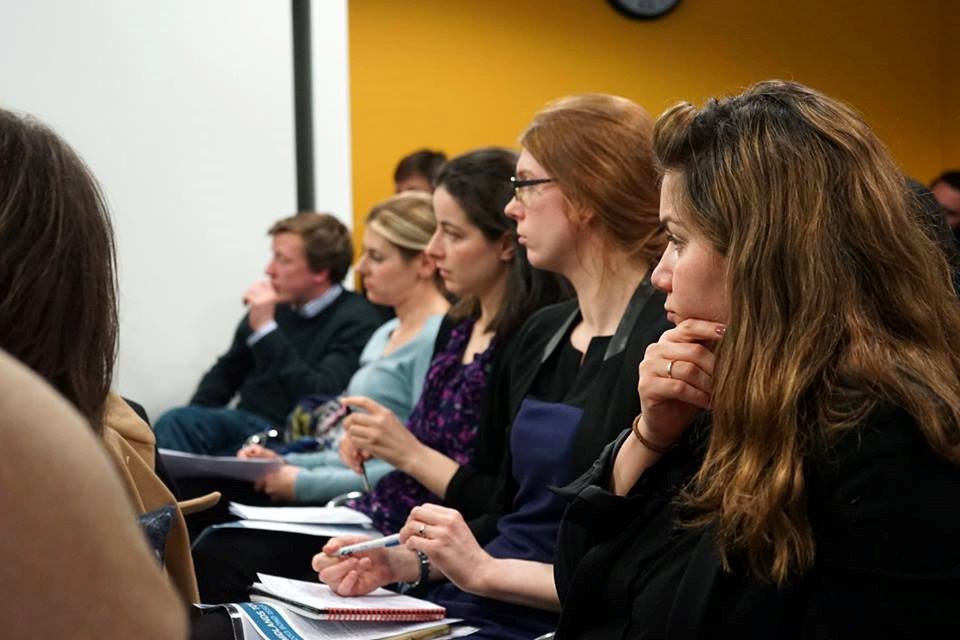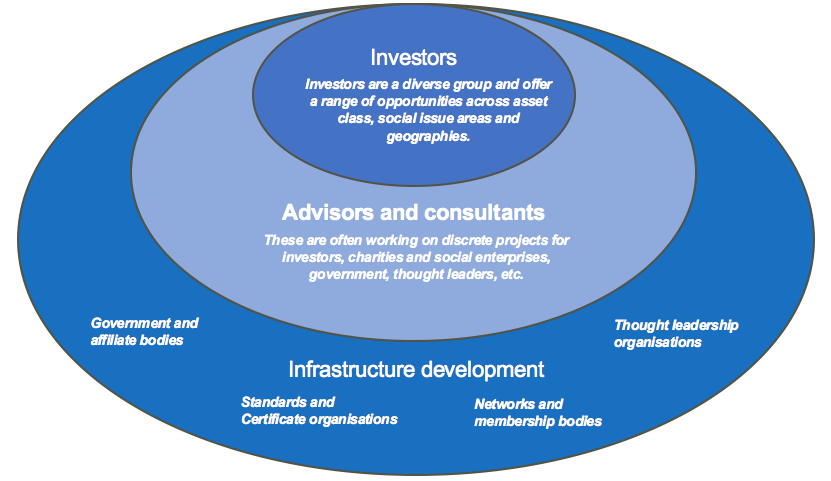Social investment is all about people.
When we think about social investment, we believe that the greatest chance to address difficult problems comes when both investors and enterprises are driven by social impact. This has been repeatedly shown, including in our latest social impact report. Yet in practice, it boils down to the people who are leading and working in both the investor and enterprise organisations to make this happen.
As we saw in our latest market sizing update, the UK social investment market alone is worth an estimated £1,950 million which is an increase of 30% on the previous year. If this trend continues both in the UK and internationally, more roles will need to created and filled to keep pace with the market. Fortuitously there are also more people looking to build careers with a social purpose, including in social investment.
To support those people who are considering taking this first step, Big Society Capital hosted an event to provide an introduction to the social investment roles available, some suggestions on how to think about which might be the best fit and to hear some reflections from those already working in social investment. My colleague Camilla and I were joined by Amir Rizwan (CAF Venturesome) and Laura Dale-Harris (Social Finance) on a panel to share our perspectives. I’ve outlined some of the key themes from the event below, and the presentation given can be found at the bottom of this blog[1].

Speaking from experience, it can be difficult knowing where to start when exploring possible roles in a new sector or industry. For social investment, I like the CASE i3 Impact Investing Career Map which we shared with the attendees as it helpfully shows the breadth of opportunities available and broadly categorises roles into investment, advisory and infrastructure development. Below is a simplified version we shared at the event:

This framework encourages people to explore roles beyond the more visible investor ones, especially as the range and number of opportunities in advisory and infrastructure development grow with an increasingly sophisticated market.
There’s no one ‘ideal’ candidate for a social investment role given its multidisciplinary nature and the general benefits of diversity. There will naturally be different key skills and competencies called for depending on the role, but the focus is often on demonstrating the transferability of experiences and skills from other roles or sectors given few people currently start their careers in social investment (although Social Finance is one organisation leading the way with a graduate scheme). I often get asked whether an investment background is required, and while it’s the case that a high proportion of people working in social investment have this background, there are a growing number who don’t. I’m just one example of someone who joined having worked in the Government and charity sector, and there are many others from the social sector, consulting, foundations and academia to name just a few.
The final area covered by all the speakers were some top tips when applying for social investment roles beyond the usual recruitment good practice:
- Demonstrate your social drive: a recruiter will need to see how you’re expressing your social drive, especially if you’re not already in a social impact focused role. This could be through volunteering with a charity, or becoming a trustee or even getting involved with your company’s CSR programme.
- Do your homework: recruiters will always look to understand why you want the job, but to building on the articulation of your social drive, be ready with the social investments and/or social enterprises that excite you and the reasons why.
- Demonstrate your empathy: this is important in most roles, but given social investment is a tool to help charities and social enterprises improve lives, being able to empathise with multiple stakeholders’ perspectives and with the range of end beneficiaries social investment is in place to support is key.
- Demonstrate your adaptability: we work in a changeable environment, often guided by public policy and programmes, therefore adaptability is key whether that’s in the design of social investment products or supporting social enterprises that access publically commissioned interventions as just two examples.
While important, these aspects only form a small part of the overall picture alongside experience, skills and competencies when being considered for a role.
We hope that the attendees left with the foundations to enable them to further investigate the opportunities social investment offer and that we’ll see some of them in this space in the future.
Big Society Capital is aiming to host similar events every six months inviting in a range of speakers to share their perspective; join the Big Society Capital careers mailing list to be notified when the next one will be run.